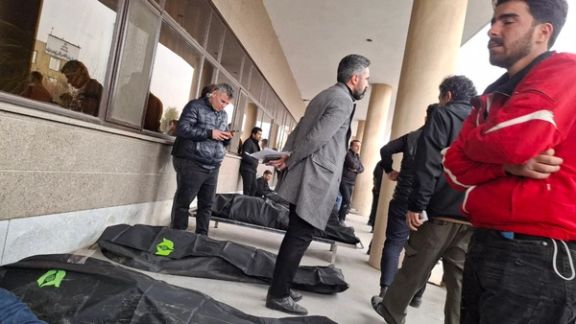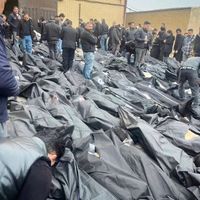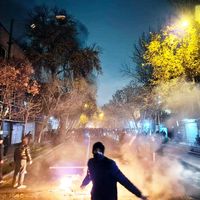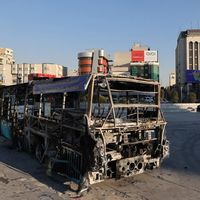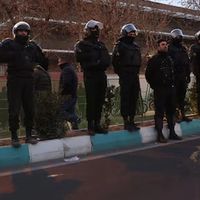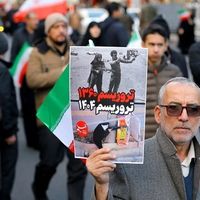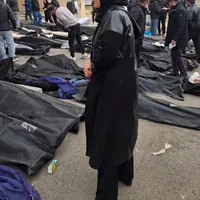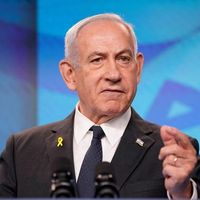Without engaging Iran in a diplomatic process or decisively chastising it on the battlefield - genuine peace may remain elusive. Iran remains a key regional player capable of shaking the fragile detente.
While a punishing US-Israeli war battered its nuclear and military capabilities, a wounded and isolated Iran could yet be a spoiler for long-term stability.
Washington has yet to extract any meaningful concessions from Iran, neither by force of arms nor increasingly onerous sanctions.
The "dark cloud" US President Donald Trump repeatedly described Iran posing in the region may yet lower over any peace agreement.
For decades, Iran has been a central force of instability in the region. Now, following the October 10, 2025 ceasefire, it finds itself in a weakened position: an economy strangled by sanctions, diminished armed allies in the region and growing international isolation.
History shows that whenever Iran has felt cornered, it has not stepped back but rather sallied forth. It expanded its war with Iraq into the Persian Gulf in the late 1980s, announced continued uranium enrichment in defiance of UN sanctions and directed proxy attacks on key Saudi Aramco oil facilities in 2019.
This pattern suggests that mere containment does not restrain Tehran but provokes even more unpredictable behavior.
Waning crescent
Trump, however, seems convinced that Iran is ready for peace. In an address to the Israeli Knesset on Monday, he said, “Iran has informed us that it fully agrees with this deal,” even extending an offer of “friendship” to Tehran.
But why does Trump believe the Iran can be coaxed into a Mideast order at peace with Israel, which would violate the essence of the Islamic Republic's state ideology?
In his drive to declare victory and end the war, Trump may be too invested in his own narrative of success. He argues that strikes on Iran’s nuclear facilities forced Tehran out of the field and paved the way for peace.
Yet was Iran’s menace really confined to the underground halls of Natanz, Fordow and Isfahan nuclear laboratories?
A glance at the so-called Shi'ite Crescent of Iranian influence in the Middle East - now very much on the wane still perceptible - suggests otherwise.
Iran has not renounced its nuclear activities and remains a vocal patron of armed Islamist movements.
The Arab world’s role is now decisive. In July 2025, the Arab League - working in an unprecedented joint move with Western powers - called for the disarmament of Hamas, stripping the group of its resistance legitimacy and disconnecting it from Iran’s paramilitary project.
The statement, urging Hamas to surrender its weapons and release hostages, marked a fundamental shift in Arab policy.
The success of Trump’s ceasefire plan now depends largely on Arab leverage. Gulf states, as key financiers of Gaza’s reconstruction, can condition their aid on Hamas’s compliance, including complete disarmament.
If the Arab world takes that path, how will Tehran respond? Capitulation seems unlikely. Iran sees Hamas as a pillar of its anti-Israel strategy, and its disarmament as a direct blow to Tehran’s regional influence.
Iran in response could intensify proxy operations - through Houthi attacks on Red Sea shipping or renewed militant activity in Iraq and Syria. Yet Iran’s current weakness - economic exhaustion, diplomatic isolation and recent military setbacks - might also push it toward negotiations.
Trump’s political bet
That is the political bet Trump is making. Still, Iran’s absence from the Sharm el-Sheikh summit, followed by Foreign Minister Abbas Araghchi’s sharp post telling Trump he was Israel's dupe, suggests talks remain far away.
The new Middle East order is no longer centered on the “axis of resistance” but on shared security and economic interests between Arab states and Israel.
Iran has gambled everything on its ideology of resistance and lost.
Its likely response will combine several tracks: rebuilding its regional standing through soft diplomacy with Arab neighbors, increasing pressure on Israel from secondary fronts like Lebanon or Syria and maintaining strategic ties with Russia and China as counterweights to the West.
At this moment, Trump is watching and waiting, ready to resort to force if Iran reacts, or to let Tehran drift into diplomatic irrelevance if it does not.
Either path could lead to a historic shift: the gradual erasure of Iran from the region’s balance of power and possibly its eventual collapse from within.






